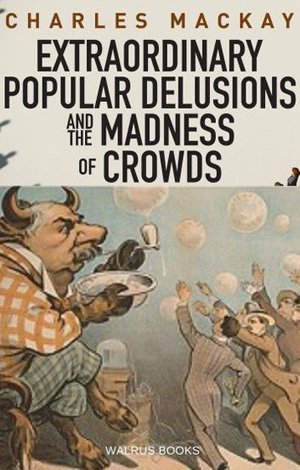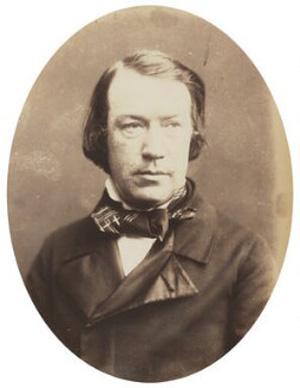Social-Political Issues
 |
 |
 |
 |
 |
 |
 |
When Will the Madness End?
I was sitting in the green room in a Manhattan television studio on the day that the storm seemed to hit. It was Thursday, March 12, 2020, and I was waiting anxiously for a TV appearance, hoping that the trains wouldn’t shut down before I could leave the city. The trains never did shut but half of everything else did.
On this day, everyone knew what was coming. There was disease panic in the air, fomented mostly by the media and political figures. A month earlier, the idea of lockdown was unthinkable, but now it seemed like it could happen, at any moment.
A thin, wise-looking bearded man with Freud-style glasses sat down across from me, having just left the studio. He was there to catch his breath following his interview but he looked deeply troubled.
 “There is fear in the air,” I said, breaking the silence.
“There is fear in the air,” I said, breaking the silence.
“Madness is all around us. The public is adopting a personality disorder I’ve been treating my whole career.”
“What is it that you do?” I asked.
“I’m a practicing psychiatrist who specializes in anxiety disorders, paranoid delusions, and irrational fear. I’ve been treating this in individuals as a specialist. It’s hard enough to contain these problems in normal times. What’s happening now is a spread of this serious medical condition to the whole population. It can happen with anything but here we see a primal fear of disease turning into mass panic. It seems almost deliberate. It is tragic. Once this starts, it could take years to repair the psychological damage.”
I sat there a bit stunned, partially because speaking in such apocalyptic terms was new in those days, and because of the certitude of his opinion. Underlying his brief comments were a presumption that there was nothing particularly unusual about this virus. We’ve evolved with them, and learned to treat them with calm and professionalism. What distinguished the current moment, he was suggesting, was not the virus but the unleashing of a kind of public madness.
I was an early skeptic of the we-are-all-going-to-die narrative. But even I was unsure if he was correct that the real problem was not physical but mental. In those days, even I was cautious about shaking hands and carrying around sanitizer. I learned later, of course, that plenty of medical professionals had been trying to calm people down for weeks, urging the normal functioning of society rather than panic. It took weeks however even for me to realize that he was right: the main threat society faced was a psychological condition.
 I should have immediately turned to a book that captivated me in high school. It is Extraordinary Popular Delusions and the Madness of Crowds by Charles Mackay (1841). I liked reading it because, while it highlighted human folly, it also seemed to indicate that we as a civilization are over that period in history.
I should have immediately turned to a book that captivated me in high school. It is Extraordinary Popular Delusions and the Madness of Crowds by Charles Mackay (1841). I liked reading it because, while it highlighted human folly, it also seemed to indicate that we as a civilization are over that period in history.
It allowed me to laugh at how ridiculous people were in the past, with sudden panics over long hair and beards, jewelry, witches and sorcery, disease and cures, land speculation, tulips, just about anything. In a surprising number of cases he details, disease plays a role, usually as evidence of a malicious force operating in the world. Once fear reaches a certain threshold, normalcy, rationality, morality, and decency fade and are replaced by shocking stupidity and cruelty.
He writes:
In reading the history of nations, we find that, like individuals, they have their whims and their peculiarities; their seasons of excitement and recklessness, when they care not what they do. We find that whole communities suddenly fix their minds upon one object, and go mad in its pursuit; that millions of people become simultaneously impressed with one delusion, and run after it, till their attention is caught by some new folly more captivating than the first.
We see one nation suddenly seized, from its highest to its lowest members, with a fierce desire of military glory; another as suddenly becoming crazed upon a religious scruple; and neither of them recovering its senses until it has shed rivers of blood and sowed a harvest of groans and tears, to be reaped by its posterity… Men, it has been well said, think in herds; it will be seen that they go mad in herds, while they only recover their senses slowly, and one by one.
After 2005 when the Internet developed into a serious repository for human knowledge, and it became accessible via smartphones and near-universal access, I too was tempted by the idea that we would enter into a new age of enlightenment in which mass frenzies would be quickly stopped by dawning wisdom.
 You can see evidence of my naïvete with my April 5, 2020 article: With Knowledge Comes Calm, Rationality, and, Possibly, Openness. My thought then was that the evidence of the extremely discriminatory impact of the virus on plus-70 people with underlying conditions would cause a sudden realization that this virus was behaving like a normal virus. We were not all going to die. We would use rationality and reopen. I recall writing that with a sense of confidence that the media would report the new study and the panic would end.
You can see evidence of my naïvete with my April 5, 2020 article: With Knowledge Comes Calm, Rationality, and, Possibly, Openness. My thought then was that the evidence of the extremely discriminatory impact of the virus on plus-70 people with underlying conditions would cause a sudden realization that this virus was behaving like a normal virus. We were not all going to die. We would use rationality and reopen. I recall writing that with a sense of confidence that the media would report the new study and the panic would end.
I was preposterously wrong, along with my four-month-old feeling that all of this stuff would stop on Monday. The psychiatrist I met in New York was correct: the drug of fear had already invaded the public mind. Once there, it takes a very long time to recover. This is made far worse by politics, which has only fed the beast of fear. This is the most politicized disease in history, and doing so has done nothing to help manage it and much to make it all vastly worse.
We’ve learned throughout this ordeal that despite our technology, our knowledge, our history of building prosperity and peace, we are no smarter than our ancestors and, by some measures, not as smart as our parents and grandparents. The experience with COVID has caused a mass reversion to the superstitions and panics that sporadically defined the human experience of ages past.
Eventually, people have and do come to their senses, but it is as Mackay said: people “go mad in herds, while they only recover their senses slowly, and one by one.”
This article was first published on
American Institute for Economic Research - AIER on July 10, 2020

On this day, everyone knew what was coming. There was disease panic in the air, fomented mostly by the media and political figures. A month earlier, the idea of lockdown was unthinkable, but now it seemed like it could happen, at any moment.
A thin, wise-looking bearded man with Freud-style glasses sat down across from me, having just left the studio. He was there to catch his breath following his interview but he looked deeply troubled.

Out of fear the mobs are acting irrationally; a fear promoted by politicians & the media
“Madness is all around us. The public is adopting a personality disorder I’ve been treating my whole career.”
“What is it that you do?” I asked.
“I’m a practicing psychiatrist who specializes in anxiety disorders, paranoid delusions, and irrational fear. I’ve been treating this in individuals as a specialist. It’s hard enough to contain these problems in normal times. What’s happening now is a spread of this serious medical condition to the whole population. It can happen with anything but here we see a primal fear of disease turning into mass panic. It seems almost deliberate. It is tragic. Once this starts, it could take years to repair the psychological damage.”
I sat there a bit stunned, partially because speaking in such apocalyptic terms was new in those days, and because of the certitude of his opinion. Underlying his brief comments were a presumption that there was nothing particularly unusual about this virus. We’ve evolved with them, and learned to treat them with calm and professionalism. What distinguished the current moment, he was suggesting, was not the virus but the unleashing of a kind of public madness.
I was an early skeptic of the we-are-all-going-to-die narrative. But even I was unsure if he was correct that the real problem was not physical but mental. In those days, even I was cautious about shaking hands and carrying around sanitizer. I learned later, of course, that plenty of medical professionals had been trying to calm people down for weeks, urging the normal functioning of society rather than panic. It took weeks however even for me to realize that he was right: the main threat society faced was a psychological condition.

It allowed me to laugh at how ridiculous people were in the past, with sudden panics over long hair and beards, jewelry, witches and sorcery, disease and cures, land speculation, tulips, just about anything. In a surprising number of cases he details, disease plays a role, usually as evidence of a malicious force operating in the world. Once fear reaches a certain threshold, normalcy, rationality, morality, and decency fade and are replaced by shocking stupidity and cruelty.
He writes:
In reading the history of nations, we find that, like individuals, they have their whims and their peculiarities; their seasons of excitement and recklessness, when they care not what they do. We find that whole communities suddenly fix their minds upon one object, and go mad in its pursuit; that millions of people become simultaneously impressed with one delusion, and run after it, till their attention is caught by some new folly more captivating than the first.
We see one nation suddenly seized, from its highest to its lowest members, with a fierce desire of military glory; another as suddenly becoming crazed upon a religious scruple; and neither of them recovering its senses until it has shed rivers of blood and sowed a harvest of groans and tears, to be reaped by its posterity… Men, it has been well said, think in herds; it will be seen that they go mad in herds, while they only recover their senses slowly, and one by one.
After 2005 when the Internet developed into a serious repository for human knowledge, and it became accessible via smartphones and near-universal access, I too was tempted by the idea that we would enter into a new age of enlightenment in which mass frenzies would be quickly stopped by dawning wisdom.

Charles Mackay
I was preposterously wrong, along with my four-month-old feeling that all of this stuff would stop on Monday. The psychiatrist I met in New York was correct: the drug of fear had already invaded the public mind. Once there, it takes a very long time to recover. This is made far worse by politics, which has only fed the beast of fear. This is the most politicized disease in history, and doing so has done nothing to help manage it and much to make it all vastly worse.
We’ve learned throughout this ordeal that despite our technology, our knowledge, our history of building prosperity and peace, we are no smarter than our ancestors and, by some measures, not as smart as our parents and grandparents. The experience with COVID has caused a mass reversion to the superstitions and panics that sporadically defined the human experience of ages past.
Eventually, people have and do come to their senses, but it is as Mackay said: people “go mad in herds, while they only recover their senses slowly, and one by one.”
American Institute for Economic Research - AIER on July 10, 2020

Posted July 24, 2020
______________________
______________________
 Volume I |
 Volume II |
 Volume III |
 Volume IV |
 Volume V |
 Volume VI |
 Volume VII |
 Volume VIII |
 Volume IX |
 Volume X |
 Volume XI |
 Special Edition |


